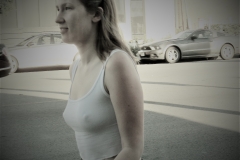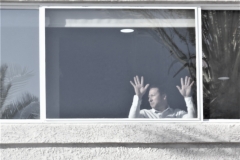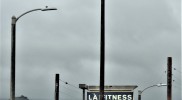|
|
Best Trivia - Poets & Poetry
| Favorite Trivia – POETS & POETRY
|
“Most joyful the Poet be;
It is through him that all men see.”
William Ellery Channing
|
| “… one of the motives behind poetry is curiosity, the wish to know what we feel and think, and how, as E. M. Forster says, can I know what I think till I see what I say, and that curiosity is the only human passion that can be indulged in for twenty-four hours a day without satiety.”
W. H. Auden & John Garrett – A Poet’s Tongue
|
“A poet alone in my country
I am seeking the verisimilitude in life
the fire of metaphors the venom of verse…”
Syl Cheney-Coker (On Being A Poet In Sierra Leone)
|
| “Whatever your occupation may be and however crowded your hours with affairs, do not fail to secure at least a few minutes every day for refreshment of your inner life with a bit of poetry.”
Charles Eliot Norton
|
| “Poets often see the world differently from most people. Some can see things hidden in the mundane; others scale lofty heights of philosophy. They all take words that capture ideas, feelings, and truth, and arrange them in ways that illuminate those realities.”
Stephanie Buckwalter – Poetry Rocks: Early American Poetry
|
|
“Poetry is the record of the best and happiest moments of the happiest and best minds.”
Shelley, A Defense of Poetry (Christopher Morley’s Book of Days for 1931 [April 18])
|
| “. . . the contemporary poet remains haunted by that strange mix of sweet dream and rude awakening.”
The Making of a Poem – ed. by Mark Strand & Eavan Boland
|
| “Read poetry every day of your life. Poetry is good because it flexes muscles you don’t use often enough. Poetry expands the senses and keeps them in prime condition. It keeps you aware of your nose, your eye, your ear, your tongue, your hand. And, above all, poetry is compacted metaphor or simile. Such metaphors, like Japanese paper flowers, may expand outward into gigantic shapes. Ideas lie everywhere through the poetry of books.”
Ray Bradbury – Zen in the Art of Writing
|
| “. . . like a perfect summer day, poetic language can make a pedestrian moment sublime.”
Stephen Burt – The Poem Is You
|
| “Of the many definitions of poetry, the simplest is still the best: ‘memorable speech.’ That is to say, it must move our emotions, or excite our intellect, for only that which is moving or exciting is memorable, and the stimulus is the audible spoken word and cadence, to which in all its power of suggestion and incantation we must surrender, as we do when talking to an intimate friend.”
W. H. Auden & John Garrett – A Poet’s Tongue
|
| “One demands two things of a poem. Firstly, it must be a well-made verbal object that does honor to the language in which it is written. Secondly, it must say something significant about a reality common to us all, but perceived from a unique perspective.”
W. H. Auden
|
| “At age eleven, hearing my first poem aired on radio caused a sprained ankle. I somersaulted across the porch, landing in the Marigolds and experienced the touted connection between art and suffering.”
“Detractors steeled my resolve for the bittersweet journey. In freshman English when I read my assigned poem, the teacher stamped her foot. ‘You did not write this.’ I had my truth.”
Frances Parker (Bylines: 2007 Writer’s Desk Calendar)
|
| “A poem is a portrait of consciousness. It’s a recording of the motions of a mind in time, a mind communicating to others the experience of its own consciousness. When I read or write a poem, I’m trying to open a window between my mind and the minds of others. Poetry is written for others. But it’s also a study of the self, which is a private kind of work.”
Chase Twichell – “Toys In The Attic: An Ars Poetica Under the Influence” (Writers on the Edge: 22 Writers Speak About Addition and Dependency, ed. by Raab and Brown)
|
| Conrad Aiken, who won a Pulitzer prize for poetry, was haunted by the murder of his mother by his father and his father’s subsequent suicide (Aiken was 11 years old).
Jeb and Dash: A Diary of Gay Life, 1918-1945 – ed. by Ina Russell
|
| “I have spent my life having fun. To make poetry is pleasure. When you write a poem it has surprises in it. It tells you things you never knew and there is no obligation in it. I don’t feel I have to follow certain rules or write a certain way. Poetry lets you lead a very selfish life.”
May Swenson
|
| “… prose cools the mind to the temperature of pure reason; poetry fires all the emotions as does life itself.”
J.G. Jennings – An Essay on Metaphor in Poetry
|
| Robert Frost was once asked by a student to explain one of his best poems. Frost reportedly replied, “What, you want me to say it less well?” |
| “What I loved about Frank O’Hara was that unlike his Beat comrades who were doing this sort of rambling, stream-of-consciousness thing, he was writing in normal, everyday language. His poems sounded like speech. They were about his friends, what he had for lunch, clothes he wore. It was sort of like pre-Instagram Instagram, by which I mean a curated portrait of his world. I had never realized that you could do that, that you were allowed to do that, to write poems in something that felt like vernacular.”
Emma Straub – The Books That Changed My Life (ed. by Bethanne Patrick)
|
| “To give unreality to an image attached to a strong reality is in the spirit of poetry.”
Gaston Bachelard – The Poetics of Space
|
| “I am the poor man’s poet, because, poor myself, I have loved. I pay my mistresses with fine words instead of presents. The poor man must be cautious in his loving. He must never permit himself any harsh sneers. He must endure much that is not required of a rich lover.” [Part Two]
Ovid’s The Art of Love, trans. by Ronald Seth
|
|
“Idleness, that is the curse of other men, is the nurse of poets, upon my word.”
Walter D’Arcy Cresswell, The Poet’s Progress (Christopher Morley’s Book of Days for 1931 [April 30])
|
| “Growing up in a time of intense transition in a place as violently contested as was the American South in the 1950s and 1960s made me care deeply about the need to be able to author my life; to be able to write well. I admit to my desire for authorship; for telling my version of the world; for breaking silence. To write poetry is to make art, whether the poem is out of personal pain, political rage, or deep spiritual trekking. I am grateful for words.“
Patricia Spears Jones (Angels of Ascent: A Norton Anthology of Contemporary African American Poetry, ed. by Charles Henry Rowell)
|
| “From an early age, I have worn heavily prescribed eyeglasses. I was often teased by other kids. I eventually tired of their taunting. I needed to say something, to respond. A single sentence pushed its way out of my mouth. ‘Because I wear glasses, I can see things that you can’t.’ I think they believed me. Curiosity trumped meanness. And in that moment I discovered the power of language and the pen became my lens… I view writing as an act of paying attention.”
Giovanni Singleton (Angels of Ascent: A Norton Anthology of Contemporary African American Poetry, ed. by Charles Henry Rowell)
|
“Don’t use the telephone.
People are never ready to answer it.
Use poetry.”
To Edward Dahlberg – Jack Kerouac
|
| “One sees a wizard of a poet tossing his words in the air and catching them and tossing them again—what a grand stunt! Then suddenly one may be astonished to find that the poet is not simply juggling cups, saucers, roses, rhymes and other random objects, but the very stuff of life. And discovering that, one discovers that seeing the poet’s ideas flash in the air, seeing them performed under such control, is not only a reward in itself, but a living experience that deepens every man’s sense of life. One finds himself more alert to life, surer of his own emotions, wiser than he would have been without that experience.”
John Ciardi – How Does a Poem Mean?
|
| “. . . no poems can please long, nor live, which are written by water-drinkers . . . poets have never ceased to vie in wine-drinking by night, to reek of it by day.” [Epistles, I. XIX.] “Seldom is the poet’s heart set on gain: verses he loves; this is his one passion.” [Epistles, II. I.]
Horace: Satires, Epistles and Ars Poetica, trans. by H. Ruston Fairclough
|
| “I never make a business of poetry, nor poetry into a business. I am serious about the need that poetry satisfies within me, but does not have to feed me. I do make an effort to be free of formal structures as such. My fantasy is to craft works that communicate with future generations through what I have coined as ‘Wemembering’ poems, which I also think of as ‘Wememetic’ poems. In both instances, I contrive and channel collective memory to transmit culturally based observations and attitudes—simple or propositional—that reflect our expressed or perceived sentiments.”
Edward S. Spriggs (Angels of Ascent: A Norton Anthology of Contemporary African American Poetry, ed. by Charles Henry Rowell)
|
| “I loved those poems that seemed so small on the page but that swelled in the mind.”
Louise Glück – Proofs & Theories: Essays on Poetry
|
| “Similar to what poets Mark Doty and Richard Hoffman discovered when they first began writing prose, Blanco found unexpected freedom in the open space of the genre. ‘There was a way of expanding on some of the characters and family members and experiences, and I just sort of got hooked in that sense. In some ways, the memoir of my Miami childhood is really the first half of my first book of poetry unpacked.'”
Richard Blanco – The Prince of Los Cocuyos: A Miami Childhood (Melanie Brooks – Writing Hard Stories)
|
| “Justice J. Michael Eakin of the Pennsylvania Supreme Court, nicknamed the ‘poetic justice of Pennsylvania,’ was rebuked for writing a dissenting opinion in seven quatrains and a footnote. The case hinged on whether a lie about the value of an engagement ring invalidated a prenuptial agreement.”
Forward by David Lehman (The Best American Poetry, 2003)
|
| “We have the poems of Sappho because the one rolled linen copy stoppered a wine jug in a cave, and the blanks are the words the acid of the wine has eaten away. Fragments are all you get.”
Paul Monette – Borrowed Time: An AIDS Memoir
|
| “As she was being dragged from the town to boring rural life, as she flew from the world she knew, where others were happy, she engaged in the comforting mental play of repeating memorized verse. Memorizing lines engages a person with the rhythms of another mind and allows the thought of another, perfectly preserved, to act as a comfort to be turned to in emergencies.”
Molly Peacock – The Paper Garden: Mrs. Delany [Begins Her Life’s Work] at 72
|
| “When I say I read well over a thousand poems during the course of the year, I really mean that I started to read well over a thousand poems. In many cases, something stopped me from finishing or I rushed to the end just to make sure nothing surprising was going to happen. Often, I failed to hear a human voce speaking to me. Too many poems seemed oblivious to my presence and not the least interested in my participation as a reader. If you’re not going to talk to me, then I’m going to stop listening, I would grumble as I turned the page… I also turned quickly away from poems that presumed an interest on my part in the poet-speaker’s psychic condition (usually misery) while showing no interest in providing any degree of linguistic pleasure, which, according to Coleridge, is the ‘immediate object of poetry.’… I was also made alert by poems that appeared to be going somewhere, poems that were taking me on an imaginative journey… Perhaps the very best poems combine an acute awareness of tradition with a unique freshness of voice… Whatever emotional or intellectual demands a poem placed on the reader, at least the reader could put trust in the poet’s implicit promise to keep up a tempo and maintain a sound pattern. It’s the same promise that is made to the listeners of popular songs.”
Introduction, Billy Collins (Guest Editor), The Best American Poetry 2006
|
| “Why do people write poems? There are probably a hundred answers to that question, maybe more, but some writers feel they have important messages to give mankind… Some people just like to play around with words as they might with jigsaw puzzles or pinball machines. Some indulge themselves with poetry secretly, in words as private as diary entries…”
Forward, David Lehman (Series Editor) – The Best American Poetry 2022
|
| “I try to be like a radio tower, gathering signals from as many places as possible. That’s how I live, and such living feeds the storehouse from which poems are made. My ears and eyes and pores are open; you never know what the poem needs so you have to slurp it all in. ‘It’ is other poems, from now and from the past, from next door and from across the universe; music, sung and not; voices and vernaculars; landscapes and cityscapes; bodily sensations and phenomena; gravitas and fancy; ancestral imaginings and imperatives.”
Elizabeth Alexander (Angels of Ascent: A Norton Anthology of Contemporary African American Poetry, ed. by Charles Henry Rowell)
|
| “[Oliver Wendell] Holmes uses vivid words to make his points and rouse the emotions. Almost every noun has an accompanying adjective, one that gives it far greater meaning and emotion… “Though he was willing to work with meter for his poetry, his relationship with rhyme was a little different. He once wrote, ‘Rhythm alone is a tether, and not a very long one. But rhymes are iron fetters; it is dragging a chain and ball to march under the encumbrance.’ Perhaps this is why Holmes deviates from a traditional rhyme scheme…“Holmes’s poetry begins to highlight another slight shift in American poetry. Instead of being a means to moralize, it starts to become a philosophical platform, a means of promoting personal philosophy. There is a shift away from stressing universal truths to espousing more personal beliefs.”
Stephanie Buckwalter – Poetry Rocks: Early American Poetry
|
| “Poetry companions us. Poems are written in solitude, but they reach out to others, which makes poetry a social act. It rises out of one solitude to meet another. Poems of terrible sadness and loss trouble and challenge us, but they also make us feel less alone and more connected. Our own desolations become more recognizable to us, more articulate, something shared. We become less isolated in our sorrow, and thus are befriended by the words of another. There is something ennobling in grief that is compacted, expressed, and transfigured into poetry.”
Edward Hirsch – 100 Poems To Break Your Heart
|
|
“A man cannot say, ‘I will compose poetry.’ The greatest poet even cannot say it; for the mind in creation is as a fading coal, which some invisible influence, like an inconstant wind, awakens to transitory brightness; this power arises from within, and the conscious portions of our natures are unprophetic either of its approach or its departure.”
Shelley, A Defense of Poetry (Christopher Morley’s Book of Days for 1931 [August 9])
|
|
“One should at any time be able to pluck a couplet like a stone from a necklace, and it should continue to shine in that vivid isolation, though it would have a different luster among and with the other stones.”
Agha Shahid Ali
|
|
“Poetry is an intimate act. It’s about bringing forth something that’s inside you—whether it is a memory, a philosophical idea, a deep love for another person or for the world, or an apprehension of the spiritual.”
“If you’ve never had to make creative use of language to fit a formal requirement, you’re in for a pleasant surprise. Yes, it’s challenging and often difficult, but it may well send you down interesting paths you wouldn’t have taken otherwise The restrictions of form push you to be more resourceful, to find the language you need. This not only teaches you a lot about language, but it’s also a lot of fun.”
“Meter comes from the Greek for ‘measure.’ Every poem has rhythm, but when the rhythm is highly organized into a pattern where the number of syllables is important, as well as whether those syllables are stressed or not then we have meter. . . Meter is a little added artifice, a heightening of the awareness of this thing you’re making is not just a journal entry or a record of your thoughts. It’s a way to work with those thoughts in a manner that constantly reminds you that language and rhythm—the way in which you say something—are as crucial as what you are saying.”
“From a standpoint of technique, you can learn from studying the styles of other writers—and from stepping back to take a good look at your own characteristic choices, including [briefly] 1) Subject Matter, 2) Diction, 3) Point of View, 4) Syntax and Grammar, 5) Form: line breaks, stanzas, structure, 6) Imagery, 7) Any other pattern that you perceive.
Kim Addonizio & Dorianne Laux – Poet’s Companion: A Guide to the Pleasures of Writing Poetry
|
“I went to work at the Wardman Park Hotel as a bus boy, where meals were thrown in and it was less hard on the sight, although the pay was not quite the same and there was no dignity attached to bus boy work in the eyes of upper class Washingtonians, who kept insisting that a colored poet should be a credit to his race. “But I am glad I went to work at the Wardman Park Hotel, because there I met Vachel Lindsay. Diplomats and cabinet members in the dining room did not excite me much, but I was thrilled the day Vachel Lindsay came. I knew him, because I’d seen his picture in the papers that morning. He was to give a reading of his poems in the little theater of the hotel that night. I wanted very much to hear him read his poems, but I knew they did not admit colored people to the auditorium.
“That afternoon I wrote out three of my poems, ‘Jazzonia,’ ‘Negro Dancers,’ and ‘The Weary Blues,’ on some pieces of paper and put them in the pocket of my white bus boy’s coat. In the evening when Mr. Lindsay came down to dinner, quickly I laid them beside his plate and went away, afraid to say anything to so famous a poet, except to tell him I liked his poems and that these were poems of mine. I looked back once and saw Mr. Lindsay reading the poems, as I picked up a tray of dirty dishes from a side table and started for the dumb waiter.
“The next morning on the way to work, as usual I bought a paper—and there I read that Vachel Lindsay had discovered a Negro bus boy poet! At the hotel the reporters were already waiting for me. They interviewed me. And they took my picture, holding up a tray of dirty dishes in the middle of the dining room. The picture, copyrighted by Underwood and Underwood, appeared in lots of newspapers throughout the country. It was my first publicity break.
“Mr. Lindsay had gone, but he left a package for me at the desk, a set of Amy Lowell’s John Keats, with a note written on the fly leaves:
December 6, 1925
Wardman Park Hotel,
Washington, D.C.
My dear Langston Hughes:
The ‘New Poetry’ movement has been going on in America since 1912. Two members of that army have died—Joyce Kilmer in the war, and Amy Lowell very recently. Already one hundred distinguished books of verse or criticism have been written and hundreds of poems set going.
Eleven of the distinguished books are by Amy Lowell—and are listed in the front of this one…
Do not let any lionizers stampede you. Hide and write and study and think. I know what factions do. Beware of them. I know what flatterers do. Beware of them. I know what lionizers do. Beware of them.
Good wishes to you indeed,
(Signed) Nicholas Vachel Lindsay
Langston Hughes, “Poetry is Practical” (Black Ink)
|
| “He [Eden] said he had, long ago, met an American woman who had aspired to be a poet and had submitted her verse to Longfellow in his old age, and called on him and received his advice. She was young then and very pretty. ‘How can I thank you, Mr. Longfellow?’ she cried earnestly. ‘You can give me a kiss,’ said Longfellow. She said to Eden, ‘I was so taken aback and startled that I just kissed him and ran straight out of the house.’”
Arnold Bennett -The Journal of Arnold Bennett
|
| “Glimpses of the poet’s visions are seen by the ordinary reader at a first reading, but as a rule much remains at first if not forever unrevealed. And the truer the artist the more his work rewards repeated perusal by the revelation of beauties that the senses were at first too busy or too blunt to detect.”
J.G. Jennings – An Essay on Metaphor in Poetry
|
| “My poetry imagines and inhabits the history of folk, mostly unknown, unrecorded, and unheralded, folk who relied on a belief in a higher power to move them from a place of can’t to can.”
Honorée Fanonne Jeffers (Angels of Ascent: A Norton Anthology of Contemporary African American Poetry, ed. by Charles Henry Rowell)
|
| “Wystan [W.F. Auden] himself is going through a curious phase. He’s as energetic as I’m idle. He takes Benzedrine regularly, in small doses, followed by Seconal at night. He says that ‘the chemical life’ solves all his problems. He writes a great deal—poems and articles and reviews—makes speeches, goes to tea parties, and dinner, is quite brilliantly talkative.” [March 18, 1939]
Christopher Isherwood Diaries
|
Vyshinsky: “And you write poetry?
Rostov: “I have been known to fence with a quill.”
Amor Towles – A Gentleman in Moscow
|
| “I confess that if a poem does not engage my ear, I am not likely to go on reading it.”
Robin Behn (Planet on the Table: Poets on the Reading Life)
|
| “The sound of the voice, over the airwaves, in sermon and in song, as well as in poetry, has a commanding effect on the human psyche. The ear is an opening with a direct line to the brain and the heart. Unlike the mouth and the eyes, it never closes.”
Catherine Bowman – Word of Mouth: Poems Featured on NPR’s All Things Considered
|
| Can There Be Poetry After Donald Trump? “Reading George Steiner’s response to Adorno’s Nihilism caused me to ponder a latter-day obscenity: Donald Trump’s ‘thugging’ his way to the American Presidency, normalizing mendacity, narcissism, misogyny, corruption, child abuse, racism, international terrorism, sub-literacy, and mass hallucination. The vision of this least educated, least trustworthy, most inept American president ever (disgraced even further by his choice of woefully atrocious cabinet members and White House staff) prompts the question: Can there be poetry after Trump? Or will literacy be reduced to Trumpism, i.e., a string of short brain farts masquerading as ideas and delivered in three-or-four-word phrases (many misspelled and ungrammatical), repeated at least three times, in case the Trumpster (adult) or Trumpite (minor) forget what each fart was supposed to mean.”
Keith Garebian – Mini Musings: Thoughts on Theatre and Poetry
|
| “[Emily] Dickinson used simple images from her everyday life—animals, insects, courtship rituals—to communicate her complex emotions and thoughts. Her poems often take the reader around a subject before getting to the main point. “Dickinson believed the truth was best experienced little by little. Too much truth at once could be blinding. She practices this method of truth telling in all her poetry. Her concise bits of information given line by line are like flashes of lightning. Each line, or flash, gives a little more insight into her thoughts. By the last line of one of her poems, the pieces come together to reveal a dazzling truth, or at least a deep thought… “It is interesting to note that her poems are not persuasive like a sermon, but are more like objective observation.”
Stephanie Buckwalter – Poetry Rocks: Early American Poetry
|
| Poetry Writing (1980) “A poet will travel great mental distances from the original point of vision in order to reach the unfinished product, the poem. The original point of vision is spontaneous and usually subjective whereas the process of refining the vision is controlled and as objective as can be.Having worked intermittently as a Poet-in-the-Schools in Virginia since 1973, I have observed that too often poetry students are urged to play with words, to put down on paper anything and everything they can think of without ever really refining their thoughts into poems. The teacher usually decides what is poetic and leaves it at that. ‘Spontaneity’ is the biggest buzz-word among teachers of poetry, and the idea that poetry is an economic use of language (saying the least to imply the most) has often been overlooked. Therefore one thing I have tried to avoid is word-inflation. Teaching middle school students to write and appreciate poetry involves a seemingly paradoxical process: first, to inspire them, to make them visionaries; second, to reduce their visions to words, and then to reduce their words. Both sides of the creative process are taught so they are capable of repeating it at their own leisure. I stressed the spontaneity in writing before the mechanics and economics of writing well, however I made it clear that they should always occur together and both are of equal importance. If you bring your right and left hands together enough, it can only result in applause.”
John Alspaugh (Poet of the Schools, 1970’s)
|
| “According to unofficial bookstore records, more of his [Charles Bukowski’s] books are stolen than any other writer’s.” “He [Charles Bukowski] wrote, he once said, for ‘the defeated, the demented, and the damned.'”
The Oxford Book of American Poetry – ed. by David Lehman
|
| “In Cummings [e.e.] the language emancipated itself from uppercase, danced around the page, called attention to its shapes, did nonphonetic tricks, made obscene jokes, and transcribed in literal phonemes the demotic sounds made by American speakers.”
Helen Vendler
|
| “…all good poetry enacts an interplay between thought and feeling, challenging the intellect at the same times as it draws on emotion.”
Neil Astley (ed.) – Staying Alive: Real Poems for Unreal Times (intro)
|
| “There has been much discussion about whether great artists should suffer for their work. Osip Mandelstam was persecuted under Stalin, who took a personal interest in the poet’s fate. Imprisoned for a poem comparing the dictator’s moustache to a cockroach, he dies in a Siberian labor camp in 1938.”
Staying Alive: Real Poems for Unreal Times – Ed. by Neil Astley
|
| “I think I will write down my memories of Dylan Thomas now… I’d better record them here, before they get too vague… As we drove out to Santa Monica, Dylan gradually heightened the steam pressure of his indignation against the English department of UCLA. He also kept pressing me to stop for a drink. This I evaded, because I was afraid he was going to get so high that he wouldn’t be able to give his reading… “Lunch was tense. Dylan had had some drinks at my house, and now accepted more—unwillingly as they were offered. The nice clean youngish-oldish blank-faced anxious English teachers sat around, waiting for the volcano to erupt… They had conjured up this dangerous little creature, excited by the dangerousness in his poems, and now that they had him there in the flesh, he terrified and shocked them… “I was nervous too, of course. I felt sure that Dylan would disgrace himself at the reading. But I was entirely wrong. When Dylan got on the platform, no one could have told that he wasn’t sober. He gave a masterly performance, not only of his own work, but of Hardy and many others. (I wish I had the program.)… He was a brilliant comedian and mimic. The audience loved him—the students, that is.” [April 10, 1950]
Christopher Isherwood – Diaries
|
| “… I need to communicate the enthusiasm that has transformed me since I have read Residence on Earth [by Pablo Neruda]. I want to throw handfuls of sand in my eyes to catch my fingers in doors, to climb to the peak of the most difficult and highest pine. It would be the best way to express the stormy admiration that a poet of such giant size awakens in me…”
Poet Miguel Hernández’s review of Pablo Neruda’s book of poems, Residence on Earth, in the January 2, 1936 issue of El sol.
|
| “Dear Warren, The great W. H. Auden spoke in chapel this week, and I saw him for the first time. He is my conception of the perfect poet: tall, with a big leonine head and a sandy mane of hair, and a lyrically gigantic stride. Needless to say he has a wonderfully textured British accent, and I adore him with a big Hero Worship. I would someday like to touch the Hem of his Garment and say in a very small adoring voice: Mr. Auden, I haveapomeforyou: ‘I found my God in Auden.'” [March 21, 1953]
Sylvia Plath – Letters Home: Correspondence 1950-1963, ed. by Aurelia Schober Plath
|
| “A Poet’s job is to ‘explode’ the moment. That means we take something small and make it big in a poem. We pay attention with all of our senses. We allow thoughts and feelings to come and go. So, really, to write a poem is to be in a state of mindfulness.”
Irene Lathan (Dictionary for a Better World – Irene Latham & Charles Waters)
|
| “… words without emotion, whatever else they are, are not poetry. The use of metaphor similarly is not poetic, unless it be an emotional use.”
J.G. Jennings – An Essay on Metaphor in Poetry
|
| “One of the problems with free verse—which I commit occasionally—is that it is damned hard to remember. Memorization, I believe, should go hand in hand with the reading and learning of poems. We can remember short verses, but a long poem in free verse is virtually impossible to recite accurately. Lacking the chains of epithets which Homer used, all we have to help us is the meter and rhyme.”
Carolyn Kizer – “A Defense of Breathing” (A Formal Feeling Comes: Poems in Form by Contemporary Women, ed. by Annie Finch)
|
| “I am a poet who has from the very beginning written in free verse, but there have been times in my life when I have retreated to form. When I have had to deal with formal pain, I have written in the sonnet. When I have thought I had very little time to put some of my thoughts on paper, I’ve retreated to haiku and tanka and felt a world of form that allowed me to live and breathe out my pain and joy When I have been expansive and sassy and wanted to flaunt it and to come off the edge of the paper, I have dealt with the blues, sung the blues, lived the blues. . .”
Sonia Sanchez – “Form and Responsibility” (A Formal Feeling Comes: Poems in Form by Contemporary Women, ed. by Annie Finch)
|
| “One of Ginsberg’s poems was called Howl. It was a great, long desperate wail, a struggle to make poetry out of all the objects, surroundings and people he had known. At times, it reached a kind of American surrealism, a bitter irony; it had a savage power. At moments, it did seem like the howling of animals. It reminded me of Artaud’s mad conference at the Sorbonne. “Then a man in the audience challenged Ginsberg in a stupid way. ‘Why must you write about the slums? Isn’t it enough that we have them?’ “Ginsberg was in a frenzy of anger. He proceeded to take off all his clothes, throwing each piece to the audience. My friend Ingrid received the soiled jockey shorts. He provoked and challenged the man to come and expose his feelings and his real self as nakedly as he had. ‘Come and stand here, stand naked before the people. I dare you! The poet stands naked before the world.’ “The man in the packed audience tried to leave. Ginsberg said: ‘Now let someone dare to insult a man who offers what he feels nakedly before everyone….’ The way he did it was so violent and direct, it had so much meaning in terms of all our fears of unveiling ourselves. The man in the audience was booed and hissed until he left. People began to throw his clothes back to Ginsberg. But he sat at ease on the couch and showed no signs of dressing again… I left, thinking it was like a new surrealism born of the Brooklyn gutter and supermarkets.”
Anaïs Nin – The Diary of Anaïs Nin: Volume Six 1955-1966
|
“I want to keep the words of my new poet-mother [who has Alzheimer’s]. I’m taping our conversations…
‘You sound a little down.’
‘A little, maybe.’
‘What does sorry look like?’
‘It’s a form of sadness brought about on a gray and heavy day. I’ve reached the ultimate of the intimate and that’s the end of it.’
‘Oh dear. Let me ask you, what do you think is the ugliest thing in the world?’
‘A lack of dignity. Is that the right answer?’
‘Yes. Okay, what about this one: what’s the worst thing a person could do to another person?’
‘They could throw their sublime into the ridiculous.’
Cathie Borrie – The Long Hello: Memory, My Mother, and Me
|
| Esther Harriott: “Could it be that the feeling that the work is yet to be finished contributes to longevity? That you must stay alive in order to finish it?” Stanley Kunitz: “There is work to be done. It’s never finished, you’re never content with it. When you’re not writing, when you’re not creating something, you feel that you’re wasting yourself, that you’re not making the fullest use of whatever was given to you. I don’t think that a poet is ever able to say, ‘I have done everything I could. Now I’m going to sit in the sun and simply loll for the rest of my life.’ There’s always something to be said, and you discover every day something new about your responses to the life around you, even if it’s only another image that communicates your sense of what it means to be alive. I think that is really the work of the poet—to tell what it means to be alive at this moment in history.” Esther Harriott: “In much of your poetry you seem to hold a tragic view of life. And yet you also seem to be blessed with a sanguine temperament.” Stanley Kunitz: “. . . To understand and confront the terrors is exalting. If one didn’t fear anything, if one had no real sense of what it means to be oblivious forever, then the life itself would be less precious. But to understand oblivion is to hold on to this precious gift, no matter how terrible, with all one’s strength.”
Esther Harriott – Writers and Age: Essays on and Interviews with Five Authors
|
“Is the function of the poet here mere sound,
Subtler than the ornatest prophecy,
To stuff the ear? It causes him to make
His infinite repetition and alloys
Of pick of ebon, pick of halcyon.
It weights him with nice logic for the prim.
As part of nature he is part of us.
His rarities are ours: may they be fit
And reconcile us to our selves in those
True reconcilings, dark, pacific words,
And the adroiter harmonies of their fall. . . . let the poet on his balcony
Speak and the sleepers in their sleep shall move,
Waken, and watch the moonlight on their floors.
This may be benediction, sepulcher,
And epitaph. It may, however, be
An incantation that the moon defines
By mere example opulently clear. . .”
Wallace Stevens – From Academic Discourse at Havana
|
| “Richard Hugo suggests that the restrictions of traditional verse can free, rather than hinder, expression. He says that rhyming—arbitrarily deciding to write ‘immaculate’ within seven syllables after choosing ‘chocolate’ is his example—’gives you a chance to surprise yourself on the page, to create things to say, maybe, or to find ways to say things you never expected to say.'”
Strong Measures [Introduction] – Ed. by Philip Dacey and David Jauss
|
| Poet: A maker, in its first sense, who works with words. The poet is a person of sensibility who uses words to discover and explore the world, both inner and outer. He finds out the quality of an experience, great or trivial, terrible or gay, by talking, perhaps by singing, to himself. He tries to re-create and so to extend the experience; at the same time he attempts to understand it.”
Poetry: The art which uses words as both speech and song to reveal the realities that the senses record, the feelings salute, the mind perceives, and the shaping imagination orders. . . The most solitary celebration, the loneliest lament, the briefest excitement and the most penetrating insight into man’s estate can be shared with whatever has aroused feeling, and the feelings themselves, are ordered and enhanced in a poem. This is the metamorphosis that humanly redeems the human condition.”
Babette Deutsch – Poetry Handbook
|
| “Poetic form, established or nonce, are like maps of places no one’s ever been, They lead the writer into uncharted territory; they show the writer where to go, even though they cannot know the way. This paradox is what keeps poetic form eternally interesting. If the writer knew in advance what she would find on her journey through the poem, she would not bother to make it. But she doesn’t know; she never knows; she knows only that the form is there like a flashlight or map and that she will see what the form reveals and go where the form takes her. She knows, too, that the form will take her somewhere, will show her a place never before seen or seen so clearly.”
Kelly Cherry – “A Flashlight or Map” (A Formal Feeling Comes: Poems in Form by Contemporary Women, ed. by Annie Finch)
|
| “I confess to a preference for the poem that comes to me expressing, by whatever mysterious means—the donnée of a line, a vague sense of musical pattern, a nudge of the will to collaborate appropriately with an ‘idea,’ or something unanalyzable—a wish to be formal. Why? A friend’s son who has recently begun to write stories said in surprise and wonder, ‘It’s the most satisfying thing you can do all by yourself,’ thereby speaking for us all, it seemed to me. For me, writing a formal poem increases that satisfaction by deepening and intensifying the out-of-body concentration, with its little flares of joy when the right word comes, which we all seek and find in writing poems of whatever kind.”
Mona Van Duyn – “Out-Of-Body Concentration” (A Formal Feeling Comes: Poems in Form by Contemporary Women, ed. by Annie Finch)
|
| I write poetry because… (extracted responses by contributors in “Bios” section in Altadena’s Poetry Review Anthology, 2019): “Writing poetry has been a journey in discovery, an expressive form to compensate for the reality in which we live. The more I delve in it, the more I want to write it.”
Maria A. Arana
“I write poetry because my mother did. I write poetry because my daughter wanted me off the couch. I write poetry to explore the mixed blessings of aging and retirement. I write poetry to experience, model, and teach—often myself. I write the poetry I write in response to challenges of form, challenges of sound, and to John Barr’s challenge for the new century: poetry that is robust, resonant, and entertaining.”
Christopher Askew
“Poetry is a natural response for me to express visual beauty and reactions to my life and our society.”
Beth Baird
“I write poetry because it’s easier than not.”
Tommy Vinh Bui
“I write poetry because I believe that words are powerful. Words create realities. Words define the world we move in. Words can shock us into thinking differently. Words are beautiful. Words are dangerous. Words are an amazing medium to work in. I hope my words can make a difference.”
Karyn G. Chen
“I find the writing of poetry challenging and enlightening. I learn new things about me every time I write about something else.”
Pat Cross
“As I continued learning about poetry I came to enjoy the various challenges of writing, the fun of wordplay, and the comradery of other poets.”
Richard Dutton
“Poetry is the escape, the door to the soul, the entrance to who we really are. Poetry is the short story of me.”
Anika Ebbert
“I write because it is something I cannot NOT do. Words and phrases come unbidden. I write on scraps of paper upside down and sideways and am forever finding lines and couplets I started years ago. I did stop for many years due to personal difficulties. I sold my first poem when I was 9—to a neighborhood child.”
Gwendolyn Fleisher
“I write poetry to cleanse my body and mind of accumulated societal toxins.”
Martina Robles Gallegos
“I have been fascinated with the written word since I was a child—the power of words, the capacity to generate emotional responses, to transport readers to a land of imagination and far flung locations across the globe.”
Esther Gillies
“I love to write, love to live, love to love, love to cook, love to eat. Teaching science is like cooking, cooking is like writing poetry, poetry is about life, love is about living, and living is about love. I love to write poetry. Long live love!”
Charles Harmon
“I write poetry to turn my inside out to see where the dragon lies.”
Leah Herod-Laymay
“Sometimes I write poetry as a release. A method of displacing what I no longer want floating around in my psyche, in hopes if I write or speak it, it will be somewhere else, just not in me. Sometimes I write poetry to record my history, so I can go back and remember who I was, discover who I am, who I am becoming. Sometimes I don’t write poetry, poetry writes me.”
Teri Hicks
“In retirement, writing poetry challenges me to continue to think creatively, challenges me to see the world through a compassionate lens, and challenges me to share my thoughts and observations in ways that take the reader with me and beyond.”
Linda Kraai
“Writing poetry is my journal for catharsis, remembrance, analysis and dedication to nature and art.”
Nancy Lind
“The written and spoken word demand mental tranquility, acuity and serenity. Poetry stands alone as its own master, the very crossword puzzle of rhyme, metaphor of time.”
Radomir Vojtech Luza
“Not only is literature recreational for me, but it has been useful professionally in enhancing my legal writing abilities. I write poetry to express viewpoints about life in general, about current events and reflections about my own life. Of all written forms of expression, I find poetry provides the greatest economy of scale for saying something in compelling, memorable fashion.”
Augie Medina
“In memoir, poetry is a way to unlock and decode my memory bank for easy retrieval of what was.”
Toni Mosley
“After spending the better part of four decades working in law firms and later for government where the writing offended me with its purposeful verbosity and incomprehensibility, I am relieved to be writing for myself. I only write poetry occasionally, but do so to learn to paint word pictures concisely.”
Marsha Oseas
“Poetry is the way I think. I like poetry because sometimes it’s like solving a puzzle. It’s fun catching and trying to understand the hidden meaning and messages in poems. I enjoy trying to connect words and phrases with other words and phrases in order to capture a feeling or vision.”
Gloria Joyce Rangel
“Writing is the best medium I know to express opinions, delight, impressions, or judgements provided by an external source or one’s inner world.”
Alicia Viguer-Espert
“Writing poetry is connection for me. I want it to bring a little piece of my universe into focus and then pass it to someone else. I hope it rings a tuning fork or opens a window—that somebody somewhere feels: Yes, that’s a part of my world, too, just like that, those words.”
Mari Werner
“I started writing when I was five years old, and never stopped. After all these years, I can still see and remember my first poem, written on yellow lined paper and I remember a ray of sunlight coming through the window on the page, ‘oh the moon, oh the stars, oh the sun!’ My father was a poet and each night instead of children’s books he read to me from a large volume I still have, ‘Great Poems of the English Language.’ Now the same sense of wonder that began my journey feels essentially the same and the impetus for all I write.”
Kathabela Wilson
“Poetry helped me to understand and appreciate life’s highs, lows and in-betweens.”
Helen Yagake
“I write poetry to give meaning to a life that is quickly passing. I write to understand the unknown, to discover and deal with life’s mysteries, and to let quiet moments reveal a sense of fear and wonder.”
Nina Yamamoto
|
| “Do any human beings ever realize life while they live it—every, every minute? [Emily] “Saints and poets maybe—they do some.” [Stage Manager]
Thornton Wilder – Our Town
|

Comments are closed.
|
|






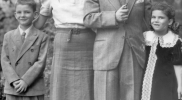
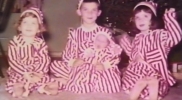




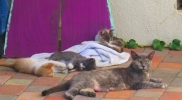

![[000015] [000015]](https://beforetheblog.com/wp-content/gallery/kids/thumbs/thumbs_000015.jpg)







